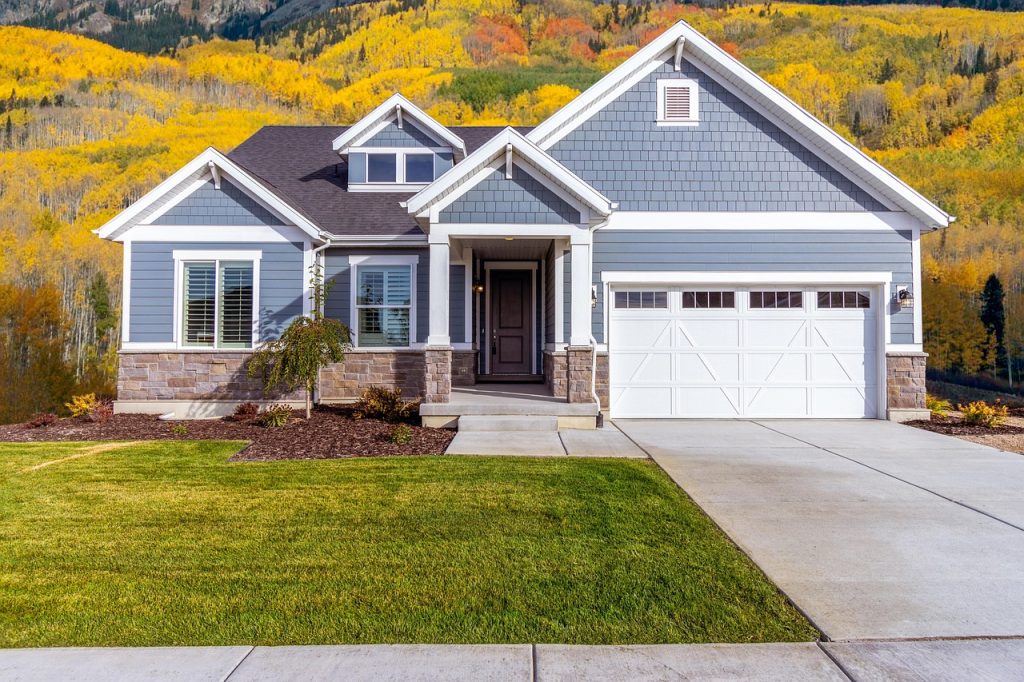Choosing the right driveway material for Ontario’s harsh climate isn’t just about appearance. Your driveway needs to survive freeze-thaw cycles that can crack weaker surfaces within a few years. The best driveway surface Ontario homeowners can install must handle everything from heavy snow to ice storms while staying functional and attractive. Let’s examine six materials that truly stand up to our challenging weather.
Permeable Pavers Handle Freeze-Thaw Cycles
Traditional concrete cracks when water freezes and expands in tiny cracks. Permeable pavers solve this problem by allowing water to drain through the surface instead of pooling.
The best driveway surface Ontario contractors recommend for longevity often includes interlocking concrete pavers. Individual units can shift slightly with ground movement without creating large cracks that ruin the entire surface.
Snow removal becomes easier with properly installed pavers. The textured surface provides better traction for both vehicles and snow removal equipment.
Benefits of permeable pavers:
- Individual units replace easily if damaged
- Water drains through instead of creating ice patches
- Available in many colors and patterns
- Can handle heavy vehicle loads
- Reduces runoff problems
- Natural snow melting through drainage
Asphalt With Proper Base Preparation
Basic asphalt driveways often fail in Ontario, but properly installed systems perform well. The key lies in adequate base preparation and quality materials.
Hot-mix asphalt installed over a proper gravel base flexes with ground movement. This flexibility prevents the cracking that destroys rigid surfaces during our temperature swings.
Regular seal coating every 3-5 years extends asphalt life significantly. This maintenance prevents water infiltration that leads to freeze damage and pothole formation.
Exposed Aggregate Concrete
Plain concrete struggles with our climate, but exposed aggregate concrete performs much better. The textured surface provides excellent traction while the aggregate creates a more durable surface.
Air-entrained concrete mixed specifically for cold climates resists freeze-thaw damage. Tiny air bubbles in the concrete allow for expansion without cracking.
Proper curing during installation makes all the difference. Concrete that cures too quickly in hot weather or freezes during installation won’t achieve its full durability potential.
Gravel Driveways Done Right
Gravel remains one of the most practical options for Ontario driveways. When installed correctly with proper drainage and the right gravel types, these surfaces last decades.
Angular crushed stone compacts better than rounded gravel. This creates a more stable driving surface that resists rutting from vehicle traffic.
The best driveway surface Ontario rural homeowners often choose includes multiple gravel layers. A base layer of larger stones provides drainage, while smaller stones on top create a smooth driving surface.
Effective gravel driveway features:
- Proper crown for water drainage
- Edge restraints to prevent spreading
- Regular maintenance to fill ruts
- Weed barrier beneath gravel layers
- Adequate depth (minimum 4-6 inches)
Stamped Concrete With Cold-Weather Mix
Decorative concrete can work in Ontario if designed specifically for our climate. Cold-weather concrete mixes include additives that improve freeze-thaw resistance.
Proper joint placement prevents random cracking. Control joints allow the concrete to crack in predetermined locations that don’t affect appearance or function.
Surface textures on stamped concrete provide better winter traction than smooth finishes. These textures also help hide minor surface imperfections that develop over time.
Interlocking Stone Systems
Natural stone pavers offer unmatched durability when properly installed. Materials like granite and limestone handle our climate extremes without deteriorating.
The installation system matters as much as the stone itself. Proper sand bedding and edge restraints prevent shifting that can create uneven surfaces.
Different stone types perform differently in our climate:
- Limestone handles freeze-thaw well but can stain
- Granite resists everything but costs more
- Sandstone offers good traction but varies in durability
- Flagstone works well but requires careful selection
Installation Factors That Affect Longevity
Drainage ranks as the most critical factor for any driveway material. Water that can’t drain away will freeze and cause damage regardless of surface type.
Base preparation determines how well your driveway handles ground movement. Inadequate bases lead to settling, cracking, and premature failure.
Proper grading ensures water flows away from your home’s foundation. This protects both your driveway and your house from water damage.
Cost Considerations for Long-Term Value
Initial installation costs vary dramatically between materials. Gravel might cost $3-5 per square foot while natural stone can run $15-25 per square foot.
Maintenance costs differ significantly too. Some materials need regular attention while others perform well with minimal care.
Factor in the replacement timeline when comparing options. A surface that lasts 30 years costs less per year than one that needs replacement every 10 years, even if the initial cost is higher.
The right driveway material for your Ontario home depends on your budget, maintenance preferences, and aesthetic goals. Focus on proper installation and drainage regardless of which material you choose – these factors determine success more than the material itself.










